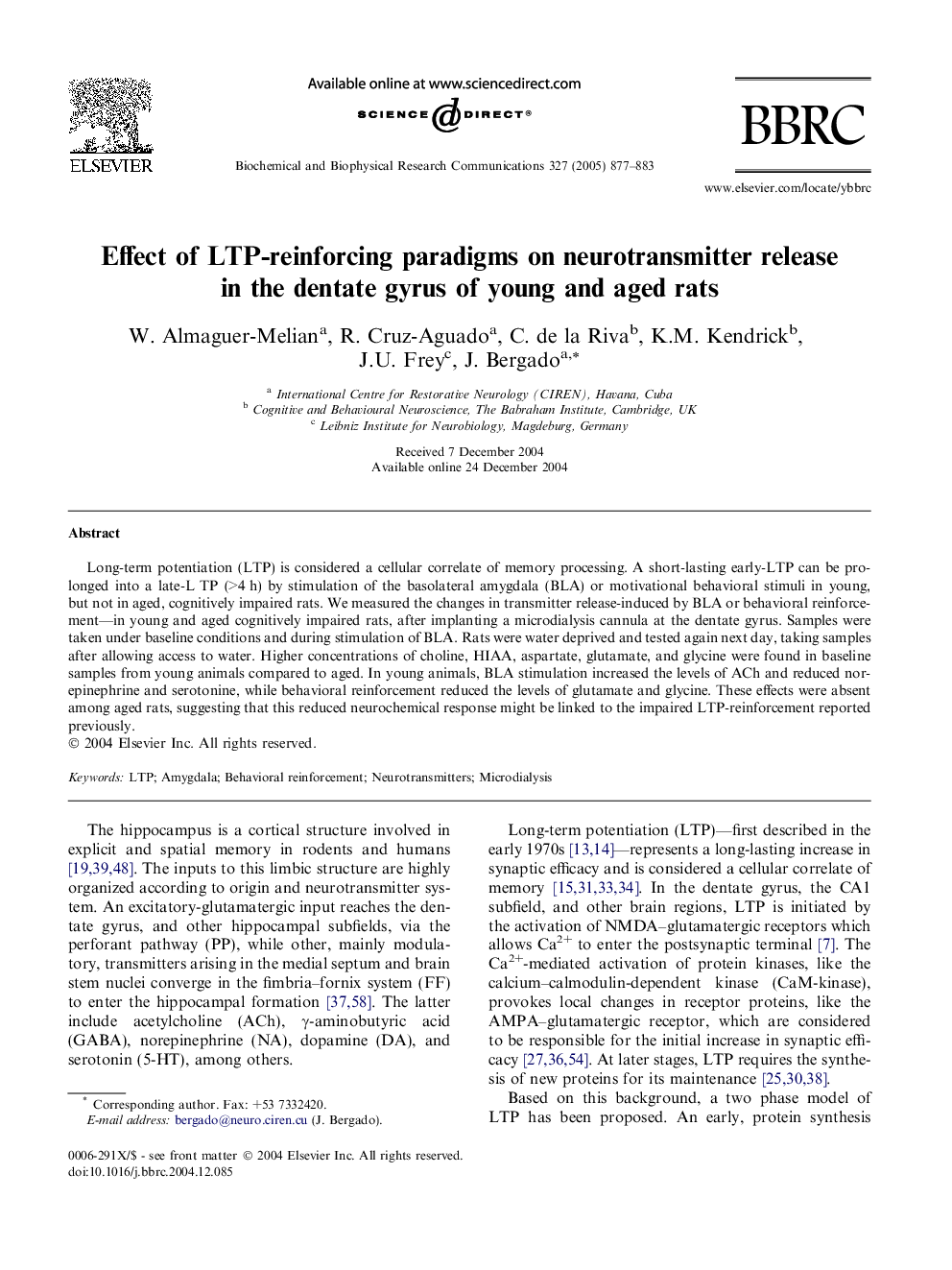| Article ID | Journal | Published Year | Pages | File Type |
|---|---|---|---|---|
| 10771526 | Biochemical and Biophysical Research Communications | 2005 | 7 Pages |
Abstract
Long-term potentiation (LTP) is considered a cellular correlate of memory processing. A short-lasting early-LTP can be prolonged into a late-L TP (>4Â h) by stimulation of the basolateral amygdala (BLA) or motivational behavioral stimuli in young, but not in aged, cognitively impaired rats. We measured the changes in transmitter release-induced by BLA or behavioral reinforcement-in young and aged cognitively impaired rats, after implanting a microdialysis cannula at the dentate gyrus. Samples were taken under baseline conditions and during stimulation of BLA. Rats were water deprived and tested again next day, taking samples after allowing access to water. Higher concentrations of choline, HIAA, aspartate, glutamate, and glycine were found in baseline samples from young animals compared to aged. In young animals, BLA stimulation increased the levels of ACh and reduced norepinephrine and serotonine, while behavioral reinforcement reduced the levels of glutamate and glycine. These effects were absent among aged rats, suggesting that this reduced neurochemical response might be linked to the impaired LTP-reinforcement reported previously.
Related Topics
Life Sciences
Biochemistry, Genetics and Molecular Biology
Biochemistry
Authors
W. Almaguer-Melian, R. Cruz-Aguado, C. de la Riva, K.M. Kendrick, J.U. Frey, J. Bergado,
